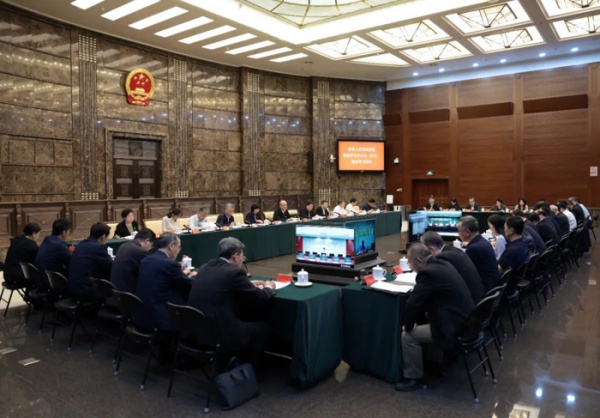SPC holds study session on Party's eight-point code of conduct

The Leading Party Members Group of the Supreme People's Court (SPC) holds a group study session on April 29, focusing on improving conduct to promote high-quality development of judicial adjudication work. Zhang Jun, secretary of the Leading Party Members Group and president of the SPC, chaired the session and delivered a speech. [Photo/court.gov.cn]
The Leading Party Members Group of the Supreme People's Court (SPC) held a group study session on April 29, focusing on improving conduct to promote high-quality development of judicial adjudication work.
Zhang Jun, secretary of the Leading Party Members Group and president of the SPC, chaired the session.
Zhang pointed out that improving conduct and working style is a longstanding mission. He underlined the need to understand the significance of carrying out the education campaign to implement the Party's "eight-point decision" on improving work conduct.
Zhang emphasized the importance of improving judicial working style through the education campaign, continuously reforming the judicial system, and strengthening adjudication management in compliance with judicial rules to enhance the people's belief in impartial justice.
He also highlighted the need for leading officials to play a key role in identifying and correcting misconducts, while vigorously combating corruption to ensure loyalty and responsibility in performing their duties.
Since late April, the Leading Party Members Group of the SPC has been organizing study sessions on the education campaign in various forms such as self-study, thematic lectures and group study sessions.
During the group study session on April 29, Yang Linping, a member of the Leading Party Members Group and vice-president of the SPC, led the study on the guiding principles of the fourth plenary session of the 20th CPC Central Commission for Discipline Inspection, and the detailed stipulations on the implementation of the CPC Central Committee’s eight-point rules. Meeting participants shared opinions on how best to improve conduct based on their practices.









